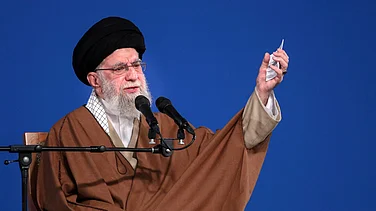As regional nations grapple with a mounting crisis of democratic legitimacy, analysts underscore the dwindling options and time available to restore order in Niger, following a recent military coup that ousted President Mohamed Bazoum. Defying a looming deadline, mutinous soldiers have yet to release and reinstate Bazoum, prompting defense chiefs from the West African regional bloc, ECOWAS, to convene in Ghana. This pivotal meeting seeks to navigate the precarious situation as the threat of military intervention hovers.
Since Bazoum's ousting in July, the political landscape remains mired in uncertainty. Amidst this backdrop, ECOWAS authorized the deployment of a "standby force" last week to reestablish constitutional governance—a decision that carries the weight of reshaping Niger's future. The complexity of potential military intervention remains shrouded in ambiguity, while conflict experts predict that assembling a sizable force from nations like Nigeria, Ivory Coast, Senegal, and Benin could span weeks or months, as AP reported.
The broader West African region has wrestled with a pattern of coups, undermining stability. Neighboring nations Burkina Faso and Mali have endured multiple coups within a short span, magnifying the urgency to address Niger's crisis promptly. The international community and ECOWAS, considering Niger's recent coup as one too many, have imposed stringent economic and travel sanctions, aimed at curbing the junta's power. However, the absence of immediate military action and stalled negotiations have inadvertently bolstered the junta's grip.
Andrew Lebovich of the Clingendael Institute states, "ECOWAS has few good options ... particularly as the (junta) seems unwilling for the moment to cede to outside pressure." The complex decision-making is underscored by concerns over potential repercussions of intervention and the fragility of the organization itself.
The African Union's involvement adds another layer of intricacy, as its Peace and Security Council considers military intervention's broader impact on continental stability. The AU could potentially overrule such an intervention if broader peace is threatened.
Western countries' substantial aid to Niger—seen as a democratic partner in combating jihadi insurgency—has been disrupted since the coup, with France and the United States suspending military operations. The void has contributed to a surge in attacks, as former militants exploit the power vacuum.
In Niger's streets, preparation for potential unrest coexists with the struggle against ECOWAS sanctions. Severe energy shortages disrupt daily life, while the aid pipeline is hampered, exacerbating a humanitarian crisis that could affect millions.
With border closures hindering supply chains, the UN coordinator in Niger, Louise Aubin, expresses concerns: "With the closure of land and air borders, it's hard to bring aid into the country."


























